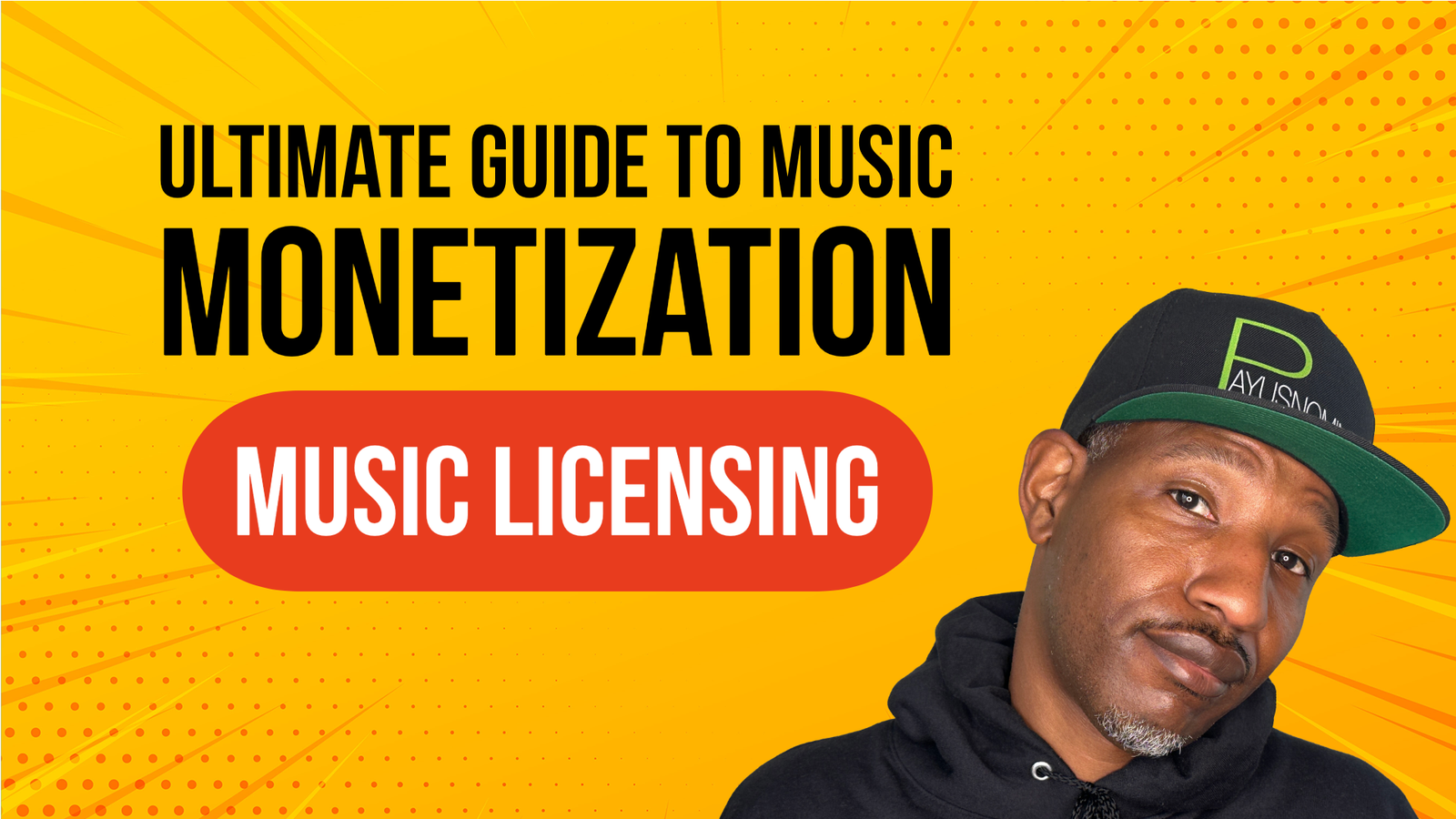Monetizing Music Through Licensing: Ultimate Guide to Monetization

Licensing How your music earns money from TV, games, covers, AI, and more Music licensing is one of the most powerful yet misunderstood forms of monetization in the industry. When someone pays to use your music - whether in a TV show, video game, cover version, or even an AI-generated remix - they’re paying for a license. That license gives them legal permission to use your work, and in exchange, you get paid. But there’s more than one “work” at play - and more than one kind of payment involved. Two Assets: Master & Publishing Licensing revenue stems from two distinct copyrights: Master Rights – the actual recording of the song. Publishing Rights – the composition (lyrics, melody, harmony, etc.) To fully control your licensing revenue, you need to own or control both. If you don’t, you’ll likely be splitting earnings with labels, co-writers, or publishers. Types of Licensing & Royalties Sync Licensing Usage of music in TV, film, video games, commercials, etc. Sync deals usually pay both the master and publishing owners. If someone wants to place your song in a Netflix show, they’ll need to pay: You (or your label) for the master You (or your publisher) for the composition You can negotiate these fees directly or work with a sync agent/library. 📻 Radio & Broadcast Licensing In the U.S., radio stations only pay for publishing rights, meaning only songwriters get paid for airplay. Labels and performing artists don’t earn anything from terrestrial radio plays (AM/FM). In other countries, it's different: They recognize neighboring rights, so both master rights holders and performers are paid royalties for radio spins. That means a hit overseas might earn you far more than one in your home country. Non-interactive Radio When your music is played on digital radio stations and platforms like Pandora, you’re owed royalties as both the owner of the master recording and as a performer. SoundExchange is the company responsible for collecting and paying performers and owners of master recordings royalties for non-interactive radio. It’s like ASCAP and BMI but for digital radio. AI & Sampling Emerging platforms like Suno and Udio that use AI to create derivative works should, in theory, pay for: Sampling: Usage of your master recording Derivative works: Use of melodies, lyrics, or style from your publishing These rules are still evolving, but artists and rights holders will likely be negotiating deals with these platforms soon, potentially creating a whole new licensing category. Many digital distributors like Tunecore, Symphonic, and Landr have already begun to license music to AI companies for training and usage. Artists can opt in and receive royalties. Lyric Display Rights Websites like Genius and Musixmatch publicly display lyrics and must pay publishing royalties to do so. These payments go through collection societies, often negotiated via publishers or services like LyricFind. Live Performance Licensing When you (or anyone else) perform your song live - at a club, bar, or festival - the venue pays a blanket license to a Performing Rights Organization (PRO) like ASCAP or BMI. You get paid: As a performer (from the promoter) As a writer (from the PRO, for the public performance) Even when someone covers your song, you’re owed royalties. You claim these royalties by filling out a form provided by your PRO detailing the date of your performance and the songs you’ve performed. Cover Song Licensing When someone records and distributes a cover of your song, they’re subject to a compulsory license: You can’t say no You can’t negotiate the rate They must pay the statutory mechanical royalty (currently 12¢ per download in the U.S.) If the cover significantly changes your lyrics or melody, it becomes a derivative work. In that case, you can say no and negotiate your fee. Sampling vs. Covering Sampling: Uses part of your master and composition ○ You can say no You can charge whatever you want Covering: Uses your composition only ○ You can’t say no (under compulsory license) ○ Payment is set by law Sampling always requires permission. Covering doesn't - unless they alter your song. Cover songs and Remixes (sampling) are major revenue drivers. One hit can be covered hundreds of times, and each version can drive significant revenue. The same rule applies to remixes. Public Performance vs. Mechanical Royalties Public Performance Royalties: Paid when your music is played in public - radio, bars, concerts, even weddings. ○ Collected by PROs: ASCAP, BMI, SESAC, etc. Mechanical Royalties: Paid when your music is duplicated - CDs, downloads, streams. ○ Collected by: MLC (U.S. only), Harry Fox Agency, SongTrust Streaming generates both mechanical and performance royalties. Split Sheets vs. Ownership Agreements Split sheets help you divide up revenue ("you get 60%, I get 40%"), but they don’t establish legal control. They don’t say: Who can approve a sync license Who can reject a cover? Who negotiates fees Without a proper ownership agreement, anyone with a stake could undercut you as long as the deal they cut is non-exclusive. If you want $10,000 for a license, another co-owner could license the same track for $1,000. Protect yourself by spelling out: Who owns what Who controls what Who gets the final say in negotiations? Takeaway Licensing is one of the few ways artists can get paid upfront for their music, but only if they own or control the rights. From cover songs to AI platforms, every usage requires permission and payment. Make sure you know the difference between split sheets and ownership, understand how royalties are divided, and don’t overlook the power of public performance and lyric rights. With the right agreements in place, one song can earn dozens of income streams over decades.